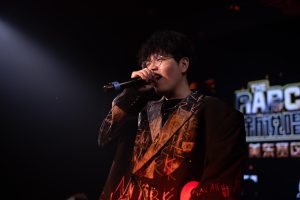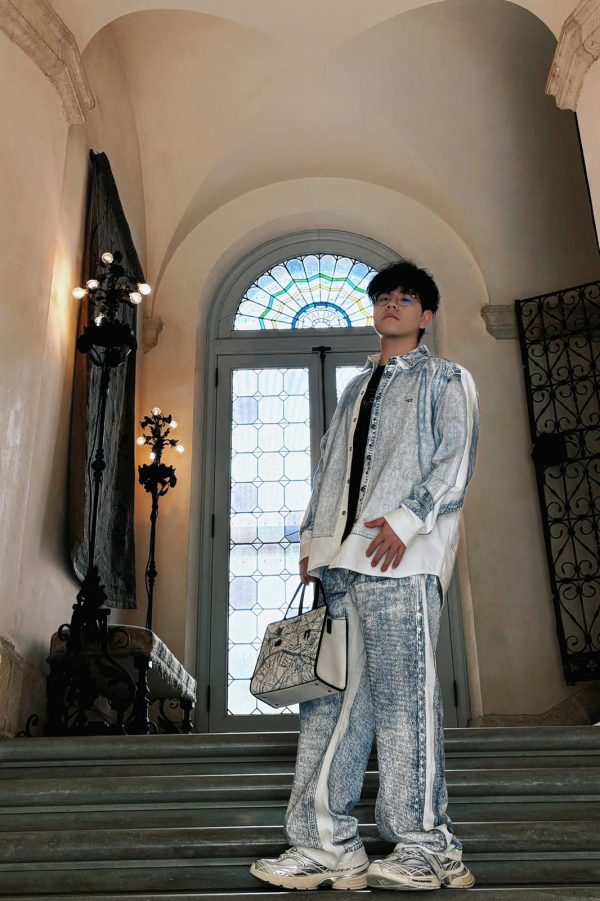
Lionzed Finds His Rhythm: Faith, Language, and the Sound of a Changing World
Artist Identity & Background
What’s your artist name, and what does it represent?
My artist name is Lionzed. My friends have always called me Lion, and I’ve been drawn to the image of the lion—it’s strong, respected, and known as the king of the jungle, yet it moves with its pride. “Zed” represents the letter Z, which comes from my last name, Zhai. The name actually started in middle school when my English teacher (who was British) used last initials to distinguish all the “Jacks” in class. I became “JackZed.” That nickname stuck and eventually evolved into Lionzed—a name that reflects both my identity and my roots.
Where are you from, and how has your city shaped your sound or style?
I’m from Beijing, China—a city rich in history and cultural depth. While cities like Shanghai are seen as modern and flashy, Beijing is grounded, traditional, and confident. Growing up, I was constantly surrounded by imperial palaces and ancient architecture. That daily reminder of heritage and legacy instilled a quiet confidence in me that naturally comes through in my music. Even the way I speak Mandarin carries the Beijing accent, and that vocal texture has become part of my sound.
Who were your earliest influences—inside or outside of hip-hop?
I first got into music through Western pop—artists like Justin Bieber, Taylor Swift, and Avril Lavigne in middle school. I still remember how excited I was hearing the rap part in Bieber’s “Baby”—it was my first exposure to hip-hop. Then I discovered Eminem, and that’s when I really started experimenting with rap. I’d record covers of his songs and post them online. That was the start of it all.
When did you first realize music was more than just a passion?
It hit me in high school after I moved to the U.S. One day, out of boredom, I opened GarageBand on my MacBook and started creating a track. Hours flew by. In Chinese, we say 废寝忘食—to forget sleep and food—and that’s exactly how I felt. That was the first time I understood deep passion. From there, I taught myself everything—songwriting, production, mixing, releasing, and marketing. The response I received from fans showed me how powerful music can be, and that’s when I knew this was my purpose.
The Music & Message
How would you describe your sound in three words?
Light. Love. Life.
What’s the story behind your latest single or project?
My latest single released on NetEase is called “Breeze for Another Summer.” I collaborated on this track with my classmate from Berklee and close friend Ajun Yao, who’s also a talented artist from China. We originally made the song two years ago during a summer night in Boston. It started as a joke—we said we should make a hit, just for fun. I quickly made a beat, and Ajun came up with a fire topline for the chorus. We both loved how it sounded. This summer, while I was back in China, we finally finished the production. Before it was even officially released, the song started gaining traction on Red Note, where short clips featuring it went viral. The track eventually hit over a million views across social media platforms, which caught the attention of several companies. We ended up signing it with NetEase Music, and we were really happy with the deal.
What do you want fans to feel or think after listening to your music?
I want my fans to know they’re not alone. I want them to feel hope and love, especially in a world that often feels dark. As a follower of Christ, I strive to create music that uplifts, heals, and points people toward a greater purpose. My message is simple: life is worth living.
What makes your approach to hip-hop different from others in the game?
Hip-hop in China differs from the West. Without the presence of guns, gangs, or certain cultural elements, Chinese hip-hop often explores personal stories and social reflections. For me, it’s about emotions, testimony, and faith. I’m merging Eastern heritage with Western hip-hop, crafting something new—Christian rap from a Beijing-born artist, made for global audiences.

Culture, Legacy, & Inspiration
How do you see yourself contributing to hip-hop culture right now?
I believe my contribution lies in amplifying faith-based hip-hop for Chinese and international audiences. There’s a gap in the scene for spiritually grounded music that still hits—and I want to fill it. I hope to become a voice for Chinese Christian hip-hop, and help others see that this genre can carry messages of truth, light, and purpose.
If you could collaborate with any artist, alive or passed, who would it be and why?
Definitely Kanye West or Justin Bieber. Both are bold creatives who’ve publicly spoken about their faith journeys. I’d love to learn from their approach to making music that bridges culture, spirituality, and controversy—and understand their walk with God on a deeper level.
Which hip-hop moment or era defined your perspective?
2016 was a golden year for hip-hop in my eyes—trap music, autotune, and catchy grooves were at their peak. I still draw inspiration from that era. My technical foundation was built from listening to Eminem, but the overall feel of 2016’s music still lives in my production today.
How do you balance staying authentic with evolving as an artist?
So far, everything I’ve released has been fully written and performed by me. That’s helped maintain my authenticity. I haven’t collaborated much yet—which I know I’ll need to do more of—but I’ve been fortunate that my natural sound resonates with listeners. That alignment between authenticity and public reception is rare, and I’m grateful for it.
Impact & Movement
How has your community influenced your journey?
My fans have been my fuel. Some have been with me since 2018, watching me grow musically and personally. I get DMs from people saying my music helped them through tough times, and those messages are why I keep going. I’ve released over 70 songs, and surpassed 100 million streams across platforms—but those numbers only matter because of the people behind them.
What role does social media play in your grind and fan connection?
Social media has been a game-changer. I’ve had content hit hundreds of thousands—even millions—of views. More importantly, it allowed people to connect with me, not just my music. Fans who may not have clicked with my songs initially were drawn to my personality, and later became loyal listeners. In today’s world, social media isn’t optional—it’s essential.
What’s one message you want the world to hear from you right now?
No matter where you are or what you’re going through—there is still hope, and there is still love. We live in chaotic times: global conflict, economic stress, AI disruption, spiritual confusion. But I believe in the power of love and faith to overcome it all. There’s salvation in the name of Jesus, and I want to share that love through music with the world.
Looking Ahead
What’s next for you—any upcoming drops, visuals, or performances?
I’m working on an album called “Son of Light“, dedicated entirely to the Lord. It’s set to release next year and features collaborations with talented producers in the U.S. I also have a few singles ready to roll out and am focused on expanding my presence stateside through more content and performances.
What does legacy mean to you as a hip-hop artist?
Legacy, to me, means using my music to change lives—and leaving behind a body of work that glorifies God and reflects my truth.
One word to describe where you’re headed in the next year?
Revival.
Connect with Lionzed
- IG: Lionzeddd
- Red Note: Lionzed
- Spotify: Lionzed